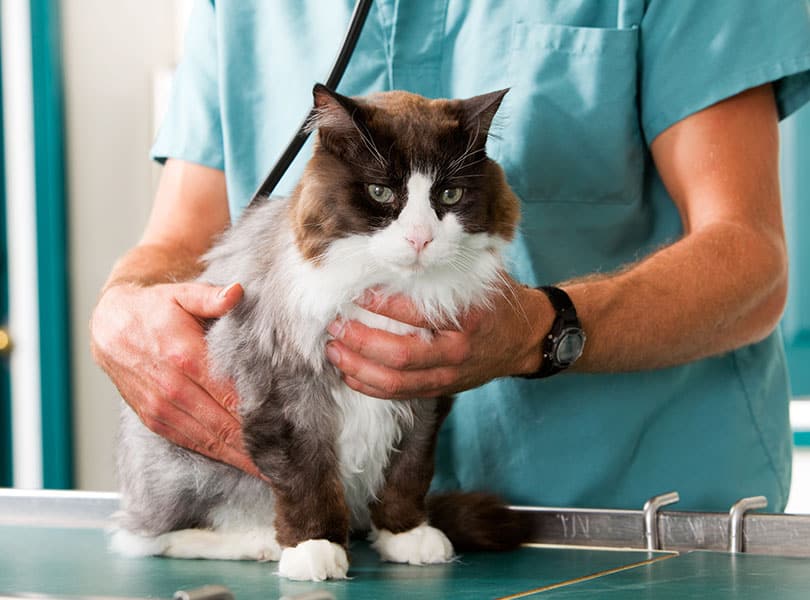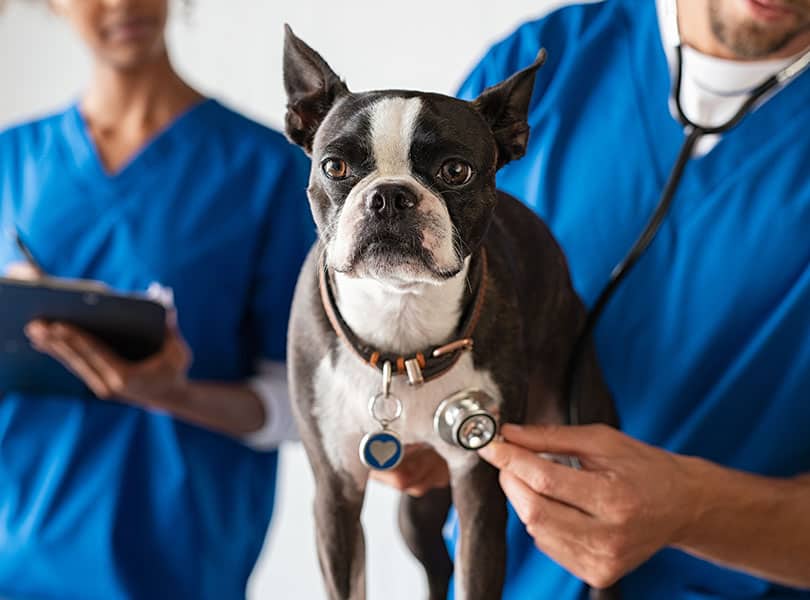Checking Out the Necessary Providers Used by a Veterinary Cardiologist: Understanding Ultrasound and CT Scan Strategies
Vet cardiologists play an important role in the wellness of pets by identifying and treating various heart conditions. They make use of innovative imaging techniques, such as heart ultrasound and CT scans, to provide exact analyses. Each approach has its unique benefits and applications. Recognizing these strategies is necessary for family pet owners seeking the most effective take care of their companions. What aspects should family pet owners think about when selecting between these diagnostic devices?

The Function of Veterinary Cardiologists in Pet Dog Health Care
Vet cardiologists play a crucial role in the medical care of family pets, focusing specifically on diagnosing and dealing with heart-related conditions. They have specialized training that allows them to analyze complicated diagnostic examinations and determine various cardio concerns. These specialists use sophisticated techniques, such as echocardiography and electrocardiography, to evaluate heart function and framework accurately.Veterinary cardiologists likewise develop customized treatment plans that may include medicines, way of life adjustments, and, sometimes, medical treatments. Their expertise prolongs to enlightening animal owners concerning heart health, highlighting the relevance of regular examinations and early detection of prospective troubles. Collaboration with general veterinarians is essential, as it assures extensive take care of family pets with suspected heart concerns. By offering specialized services, vet cardiologists substantially enhance the high quality of life for family pets and supply satisfaction for their proprietors, enhancing the importance of heart health in total pet wellness.
Common Heart Issues in Animals
Common heart concerns in pets can substantially affect their health and quality of life. Heart whisperings, numerous sorts of cardiomyopathy, and congenital heart defects are amongst one of the most common conditions that veterinarians encounter. Board Certified Veterinary Cardiologist. Understanding these concerns is essential for pet proprietors to ensure prompt diagnosis and appropriate therapy
Heart Murmurs in Pets
Although heart whisperings can be a source of problem for family pet owners, they are not constantly indicative of serious wellness issues. A heart whispering is an uncommon audio produced by unstable blood flow within the heart. In pet dogs, these murmurs can be triggered by various aspects, including hereditary heart defects, shutoff problems, or perhaps stress and anxiety throughout exams. Several pet dogs with heart whisperings lead regular lives without substantial health effects. To identify the underlying reason, veterinary cardiologists usually employ analysis strategies such as echocardiograms and Doppler ultrasounds. Early detection and evaluation are important, as they might aid manage any potential cardiac problems successfully. Animal owners are encouraged to consult their veterinarian for a thorough examination if a heart whispering is identified.
Cardiomyopathy Kind Explained
Cardiomyopathy incorporates a team of illness affecting the heart muscle, resulting in compromised cardiac feature in pet dogs. One of the most usual kinds include dilated cardiomyopathy (DCM), hypertrophic cardiomyopathy (HCM), and limiting cardiomyopathy (RCM) DCM mostly impacts canines, triggering the heart to expand and weaken, which lessens its capability to pump blood efficiently. On the other hand, HCM is extra widespread in cats, characterized by the enlarging of the heart walls, often causing obstructed blood flow. RCM, though much less usual, happens when the heart muscle comes to be stiff, limiting its capability to fill with blood. Each kind presents one-of-a-kind difficulties in diagnosis and therapy, necessitating specialized vet cardiological assessment to ensure peak management and take care of affected pet dogs.
Congenital Heart Issues
Genetic heart problems represent a substantial group of heart issues in family pets, distinctive from gotten problems such as cardiomyopathy - Cancer Veterinary Near Me. These issues are structural irregularities existing at birth, influencing the heart's normal feature. Usual types include patent ductus arteriosus, ventricular septal issues, and pulmonic stenosis. Signs and symptoms may vary extensively, varying from mild to serious, and can consist of exercise intolerance, coughing, and difficulty breathing. Early diagnosis via innovative imaging techniques like ultrasound is necessary for reliable management. Veterinary cardiologists play a vital duty in identifying these conditions and recommending proper therapy choices, which might consist of clinical monitoring or medical treatment. Identifying genetic heart flaws permits far better end results and boosted lifestyle for affected pets
Understanding Heart Ultrasound: Just How It Functions
A substantial variety of vet practices currently make use of cardiac ultrasound as a necessary analysis tool for examining heart health and wellness in animals. This non-invasive technique uses high-frequency audio waves to develop images of the heart's framework and function. During the treatment, a vet technician uses a gel to the pet's breast and uses a transducer to discharge ultrasound waves. These waves jump off the heart and surrounding structures, creating real-time pictures on a monitor.Veterinarians can evaluate various facets of heart wellness, consisting of chamber size, wall activity, and valve feature. In addition, heart ultrasound permits for the detection of abnormalities such as liquid accumulation and genetic heart flaws. This technique is crucial for identifying conditions that might not show up via conventional radiographs. By offering thorough information concerning the heart's composition and efficiency, cardiac ultrasound help in formulating reliable treatment plans for pets experiencing heart problem.
The Value of CT Checks in Identifying Heart Issues
How do CT scans boost the diagnosis of heart disease in veterinary medication? CT scans offer thorough cross-sectional photos of the heart and bordering structures, permitting vets to picture complex anatomical partnerships. This imaging technique is especially beneficial in determining genetic heart defects, cardiac growths, and problems in blood vessels. By using innovative imaging formulas, CT scans can assess heart chamber sizes and feature, supplying a thorough sight that might be hard to achieve with conventional methods.Additionally, CT angiography can picture blood circulation and recognize locations of constriction or blockage, which is important for preparing prospective treatments. The rate and precision of CT scans likewise assist in fast medical diagnoses, find out essential in emergency situations. Ultimately, the incorporation of CT scans into veterinary cardiology greatly improves the accuracy of diagnoses, making it possible for targeted therapy plans and boosting client outcomes for pets experiencing from heart conditions.
Contrasting Ultrasound and CT Check Methods
While both ultrasound and CT scans are vital devices in veterinary cardiology, they provide distinct advantages and constraints that affect their usage in identifying heart conditions. Ultrasound, or echocardiography, offers real-time imaging of the heart's structure and feature, enabling veterinarians to assess heart chambers, shutoffs, and blood circulation. It is particularly reliable for reviewing problems like congestive heart failure and cardiomyopathy. Ultrasound may be restricted in visualizing certain anatomical frameworks due to client dimension or obesity.In comparison, CT scans offer detailed cross-sectional pictures of the heart and bordering tissues, making them perfect for recognizing structural irregularities, lumps, or vascular problems. CT scans give extensive understandings, they require sedation and may include radiation direct exposure. Ultimately, the option in between ultrasound and CT scans relies on the specific medical circumstance, the patient's problem, and the info required for a precise medical diagnosis.
Treatment Options Offered Via Vet Cardiology
Veterinary cardiology provides a variety of therapy options tailored to deal with different heart disease in pets. Therapy plans usually More Help start with lifestyle modifications, including diet plan modifications and workout changes, intended at boosting total heart wellness. Drugs play a vital function, with cardiologists prescribing drugs such as diuretics, beta-blockers, and ACE inhibitors to boost and take care of signs heart function.In a lot more serious instances, interventional procedures, such as balloon valvuloplasty or stent placement, might be required to ease obstructions or enhance blood flow. For sure genetic heart issues, medical alternatives may be explored to correct architectural problems. Furthermore, ongoing surveillance and follow-up treatment are crucial parts of a detailed therapy plan, enabling prompt adjustments based upon the family pet's reaction to therapy. On the whole, veterinary cardiology focuses on supplying effective, customized like optimize the wellness and well-being of pet clients with heart conditions.
Exactly how to Prepare Your Pet for a Heart Assessment
Preparing a family pet for a heart evaluation is necessary to assure exact outcomes and a smooth process. Owners should first schedule the visit with the vet cardiologist and talk about any kind of particular demands or worries. It is suggested to hold back food for at the very least 12 hours before the evaluation, as this aids enhance imaging top quality throughout procedures like ultrasound or CT scans.Additionally, maintaining a tranquil atmosphere on the day of the appointment can help reduce the pet dog's stress and anxiety. It is helpful to bring along any kind of relevant medical documents, consisting of previous examinations and medications (CT Scans For Animals). Proprietors should likewise make certain that their animal fits and leashed throughout transportation to the facility. Ultimately, acquainting themselves with the assessment process can aid and alleviate worries in asking informed questions during the assessment. By adhering to these actions, proprietors can contribute significantly to the performance of the heart examination
Often Asked Questions
For how long Does a Heart Ultrasound or CT Scan Take?
The duration of a cardiac ultrasound typically varies from 30 to 60 mins, while a CT scan may take about 15 Extra resources to 30 mins. Aspects such as the client's condition can affect these time quotes.

Are There Any Type Of Risks Connected With These Analysis Procedures?

Can I Remain With My Pet During the Treatment?
The vet facility's policy usually dictates whether pet proprietors can stay during procedures. While some facilities motivate owner presence for convenience, others may call for separation to guarantee security and perfect problems for diagnostic imaging.
Just how Much Do These Analysis Tests Usually Cost?
The prices of diagnostic tests, such as ultrasound and CT scans, typically differ based on area and facility. Generally, rates range from a couple of hundred to over a thousand dollars, reflecting the intricacy and innovation entailed.
What Is the Healing Refine After a Cardiac Analysis?
The healing procedure after a cardiac analysis includes monitoring the family pet for any prompt reactions, making sure comfort, and limiting exercise. Veterinarians commonly offer post-evaluation guidelines to direct family pet proprietors during this necessary recovery period. Heart murmurs, different kinds of cardiomyopathy, and genetic heart problems are amongst the most widespread problems that veterinarians experience. A heart whispering is an uncommon noise produced by turbulent blood circulation within the heart. Cardiomyopathy incorporates a team of illness affecting the heart muscle mass, leading to compromised cardiac feature in pets. Hereditary heart problems represent a substantial group of cardiac issues in animals, unique from obtained conditions such as cardiomyopathy. Ultrasound, or echocardiography, supplies real-time imaging of the heart's framework and feature, permitting vets to analyze heart chambers, shutoffs, and blood circulation.
Comments on “When Should You See a Board Certified Veterinary Cardiologist for Your Pet?}”